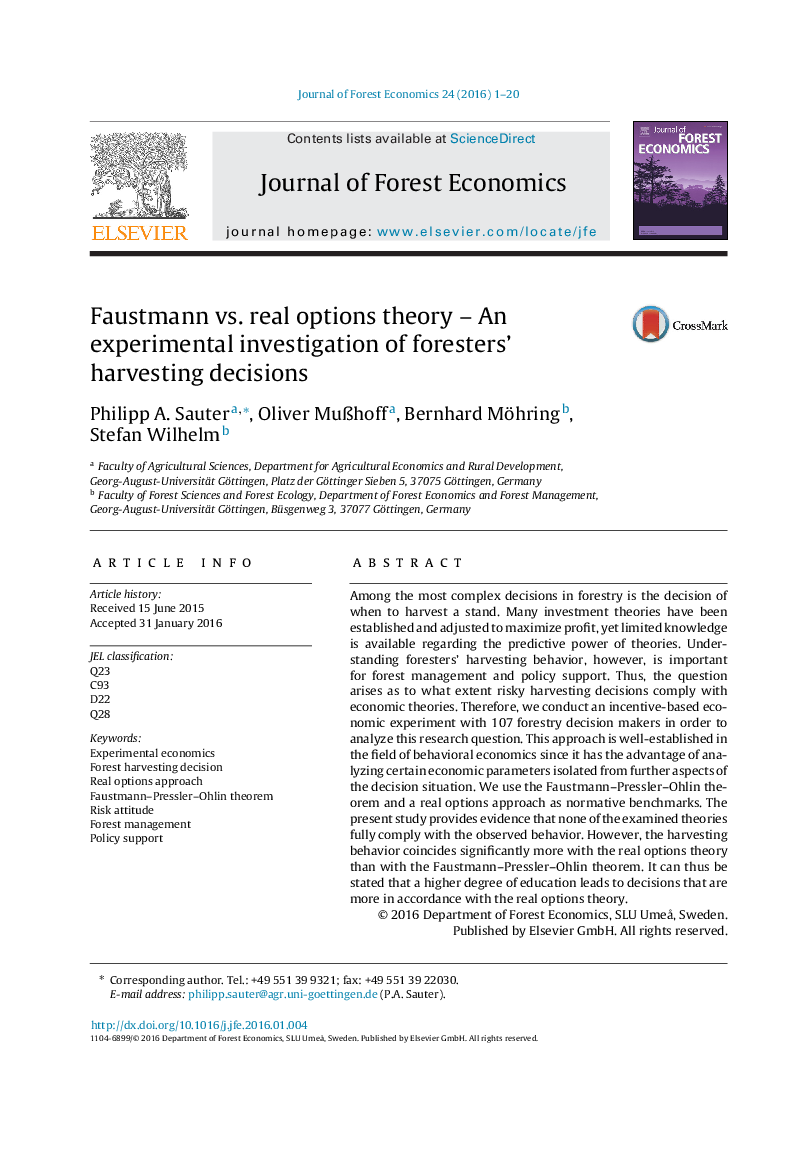| Article ID | Journal | Published Year | Pages | File Type |
|---|---|---|---|---|
| 6545163 | Journal of Forest Economics | 2016 | 20 Pages |
Abstract
Among the most complex decisions in forestry is the decision of when to harvest a stand. Many investment theories have been established and adjusted to maximize profit, yet limited knowledge is available regarding the predictive power of theories. Understanding foresters' harvesting behavior, however, is important for forest management and policy support. Thus, the question arises as to what extent risky harvesting decisions comply with economic theories. Therefore, we conduct an incentive-based economic experiment with 107 forestry decision makers in order to analyze this research question. This approach is well-established in the field of behavioral economics since it has the advantage of analyzing certain economic parameters isolated from further aspects of the decision situation. We use the Faustmann-Pressler-Ohlin theorem and a real options approach as normative benchmarks. The present study provides evidence that none of the examined theories fully comply with the observed behavior. However, the harvesting behavior coincides significantly more with the real options theory than with the Faustmann-Pressler-Ohlin theorem. It can thus be stated that a higher degree of education leads to decisions that are more in accordance with the real options theory.
Keywords
Related Topics
Life Sciences
Agricultural and Biological Sciences
Agronomy and Crop Science
Authors
Philipp A. Sauter, Oliver MuÃhoff, Bernhard Möhring, Stefan Wilhelm,
